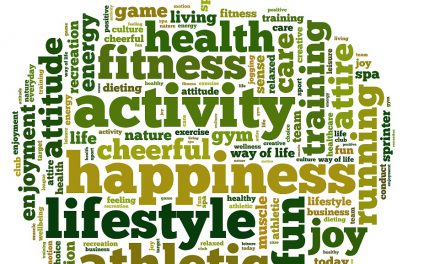
Why Exercise Alone Might Not Be Enough
We all know that exercise is healthy, and each of us have a different idea of what it is and how to do it. But what if exercise alone is not enough to truly benefit our mental and physical health? Think about it …
To view the full article please register below:
Why Exercise Alone Might Not Be Enough
When you think of exercise, what comes to mind? Is it burning calories, improving fitness, combating poor dietary choices or low activity levels? Or, do you use exercise as a tool to combat stress? We all know that exercise is healthy, and each of us have a different idea of what it is and how to do it. But what if exercise alone might not be enough to truly benefit our mental and physical health? Think about it … does an hour in the gym actually negate the 21 hours of inactivity that most Americans experience in one day? Currently, the national average is 13 hours of sitting and eight hours of sleep.1
Ancestrally, humans engaged in regular physical activity everyday. For just about our entire evolutionary past, up to about 100 years ago, 95 percent of our population was engaged in frequent physical and mental activity. We walked eight to 10 km or more a day for work, food and other aspects of life.2 We stood, lifted, walked, pushed and pulled more in one day than most of us do now in a week! We were more fit and suffered from far fewer mental and physical ailments. There simply was no real need for gyms or exercise.
Today, the situation is much different. Gyms and exercise are essential, but unfortunately just not enough for most of us. Research clearly shows how our chronic sitting posture—slumped, arms forward, head down—is sabotaging our state of mind and physical health.
So in addition to your regular exercise routine, or for those of you who are not exercising regularly, try fitting these tips into your everyday life. The trick is to keep moving throughout the day, not just at the gym.
• Take a standing/walking break every 30-60 minutes at work or home
• Sit on the floor while watching TV (squat, cross legged or kneel)
• Stand, stretch and do some light exercises during TV commercials
• Cook more, because you need to stand to cook in most cases
• Park further from the entrance of a building and walk
• Take the stairs instead of the elevator or escalator
• Take regular electronics breaks; keep your phone in your pocket or in your car more often
Additionally, you can use your smartphone or computer to help remind you to establish new, healthier habits.
Lastly, try to bring more mindfulness and activity into your life rather than falling into the traps of modern-day conveniences and inactivity. Being healthy is a lot easier than you think. You don’t need to turn your whole life upside down; it just takes a little effort each day to start moving in the right direction.
1. http://www.prnewswire.com/news-releases/new-survey-to-sit-or-stand-almost-70-of-full-time-american-workers-hate-sitting-but-they-do-it-all-day-every-day-215804771.html
2. https://breakingmuscle.com/learn/walking-the-most-underrated-movement-of-the-21st-century and https://www.ncbi.nlm.nih.gov/pubmed/20843503
See referenced disclosure (2) at https://blog-dev.americanportfolios.com/disclosures/












